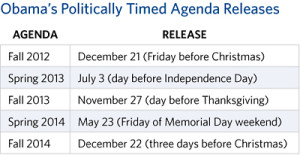
In Los Angeles v. Patel, decided this morning, the Supreme Court held 5-4 with Justice Kennedy joining the four liberals that a Los Angeles law requiring hotels to give police free access to guest registries was facially in violation of the Fourth Amendment because it did not provide a way for hotels to challenge a given disclosure. Justice Sotomayor wrote the majority opinion. Cato had filed an amicus brief on behalf of the position that prevailed. Earlier here. Pictured postcard via present-day Vibe Hotel. More: Josh Gerstein, Politico; Jim Harper, Cato.
More from Conor Friedersdorf: Justice Scalia in dissent focused on the historically closely regulated nature of innkeepers, but would he feel as comfortable if technological advance turned the hotel registries into an instantly accessible government database of where all travelers are staying, a development lawyers for Los Angeles appeared to view as perfectly Constitutional?

